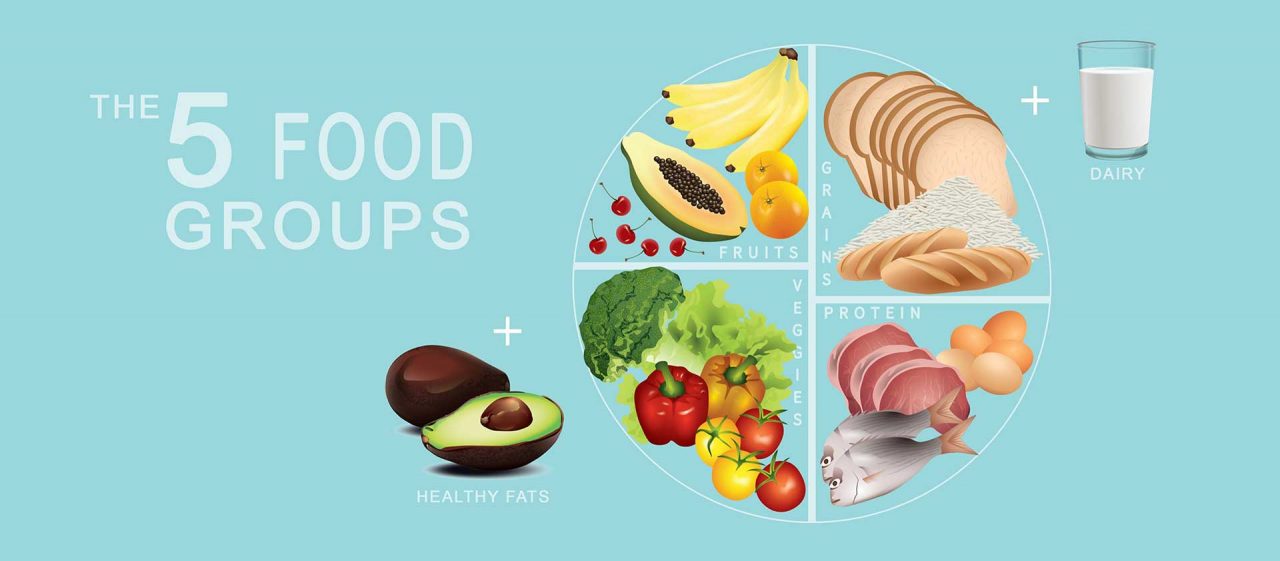What is
Nutrition
Importance of
Nutrition
- Good Nutrition Improves Well-Being
- It’s Expensive To Be Unhealthy
- Helps You Manage A Healthy Weight
- Maintains Your Immune System
- Delays the Effects Of Aging
- Gives You Energy
- Reduces The Risk of Chronic Disease
- Healthy Eating Positively Affects Your Mood
- Increases Focus
- Healthy Diets May Lengthen Your Life
A balanced diet refers to balance of food groups or protein fat and carbohydrate, fluid, and calories. In order to maintain optimal health and weight, an overall balanced diet is key. The balance of food groups, fluid, and calories is dependent on the individual. For example a sport athlete will have a very different ideal nutritional balance need than a sedentary person. In general, a balance of 50% carbohydrate, 30% fat, and 20% protein is recommended. Total calories is dependent upon the individual, and ideal fluid is about half of body weight in pounds in ounces.
To get the proper nutrition from your diet, you should consume the majority of your daily calories in:
- Fresh Fruits
- Fresh Vegetables
- Whole Grains
- Legumes
- Nuts
- Lean Proteins
Energy Rich Foods
Do you constantly feel lazy and worn out at work or at home? If this occurs even after you consume your daily meals and have adequate sleep, then it may simply mean your diet is lacking in energy rich foods.
Energy foods as the name suggests are specialists that give your body and brain a constant dose of calories throughout the day, helping you stay focused and energetic on your work. This automatically improves your work output, in turn boosting your productivity in personal and professional lives.
Although you may be eating regularly, if you still feel weak and tired, it means you are not eating the “right type” of foods. High-energy foods will give your body energy by releasing glucose molecules throughout the day.
Saturated foods, refined foods and junk foods on the other hand will provide instant glucose molecules, making you feel energized but unfortunately, this feeling will last only a few minutes or hours. A decrease in glucose molecules will automatically shut your brain slowly, making your feel sleepy because your brain cells do not have enough fuel (glucose molecules) to run for the day.
Listed below are some famous high-energy foods that will help you increase your energy levels throughout the day:
- Oats
- Nuts
- Eggs
- Lentils
- Sweet Potatoes
- Beans
Protein Rich Foods (Body Building Foods)
Protein makes up the building blocks of organs, muscles, skin, hormones and pretty much everything that matters in your body.
For this reason, you should eat high-quality protein at every meal.
Studies show that this improves health in various ways, such as helping you lose weight and belly fat, while increasing your muscle mass and strength.
A diet high in protein also lowers blood pressure, fights diabetes and more.
There are many different kinds of high protein diets. Many high protein diets may be risky for overall health because they stress the consumption of meats and high protein foods containing saturated fat and a high percentage of overall fat.
- Eggs
- Almonds
- Milk
- Broccoli
- Tuna
- Lean Beef
Protective Foods
Protective foods are the foods that contain adequate amounts of vitamins, minerals, and high-quality proteins and they protect against the development of a deficiency disease. Including protective foods in your diet is a natural way to fight disease, ward off infection and maybe even extend your lifespan. Protective foods have benefits beyond disease prevention as well. The calcium and nutrients found in low-fat dairy products, vegetables, fruits, grains and lean proteins, for example, can guard against certain cancers, hypertension, scurvy, diabetes, osteoporosis heart disease, bone loss, kidney stones and stroke. Diet alone cannot guarantee good health and is not a magical cure-all, but its significance is enormous.
- Eggs
- Meat
- Milk
- Green Leafy Vegetables
- Citrus Food
- Carrot
Fiber Rich Foods
Fiber is a substance found in plant and the dietary fiber that you eat is found in fruits, vegetables and grains. It’s very important part of a healthy diet. Eat more fiber to get maximum benefits. High fiber foods can provide other health benefits as well, such as helping to maintain a healthy weight and lowering your risk of diabetes and heart disease other than its main function of bowel stability and strength.There are broadly two categories of fiber and we need to eat both in our daily diets for a better health and functioning of our body.
- Whole Wheat Pasta
- Brown Rice
- Corn
- Sweet Potatoes
- Banana
- Lentils

